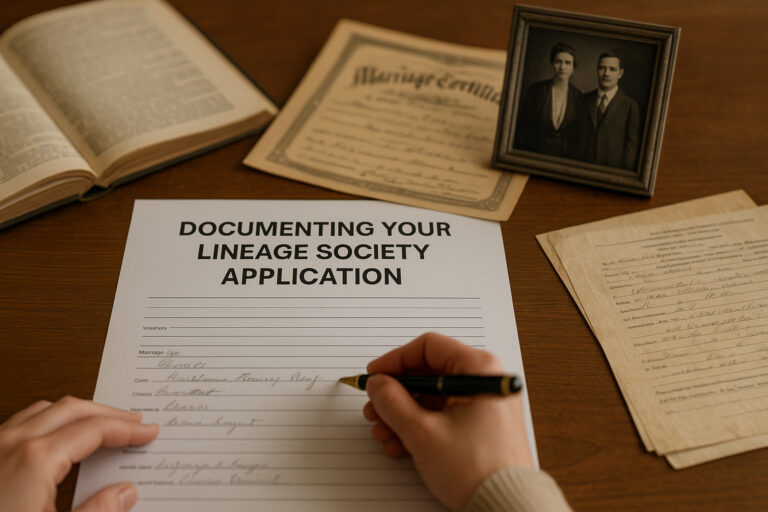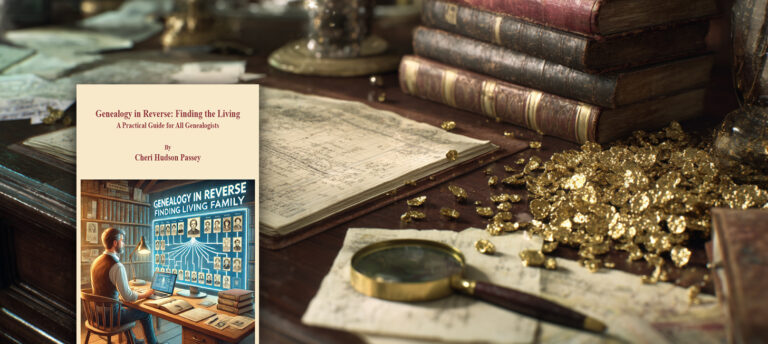
“Fishing or Researching?”, by the late Terrence M. Punch
Before the Internet was generally in use, people seeking their family trees sooner or later went to an archives in search of information. We spoke with relatives to elicit stories and details about the family. Some hung around cemeteries or called in at the local Registry of Deeds or the Probate Court. Pastors and parish clerks came under siege as dozens of family historians beset them with requests for records of baptisms, marriages and burials. Still, in the long run, for most of us the archives was “Mecca”. In some ways, it still is.
During the 1990s material began to appear on the Internet, a trend that has grown exponentially since 2000. As data was keyed onto websites and links to collections multiplied, increasing numbers of people took up genealogy as a hobby, a quest or an obsession. For anyone living several hours’ drive from a major repository, Internet genealogy was a blessing. The remote, the disabled and the elderly could research at home. Alas, as so often is the case, there may be a worm in the apple.
Well-intentioned people spent hours putting material on the ‘Net, good, bad, and indifferent. We learned, “Junk in, junk out”, when what we believed was reliable information turned out to be filled with mistakes. Some helpful postings were unsourced, i.e., there was no citation telling where the information came from. It matters whether data is authentic or merely the product of someone’s imagination.
Was the person who posted the information working from a primary source, meaning a document created at or near the event by someone actually there, or at least a photographic reproduction thereof? Was that story just what great uncle Ron cooked up after his third double scotch? Was grandmother embarrassed about her oldest brother being a 6-month baby, so she put back the date of her parents’ wedding by a year so that there was no hint that her parents had indulged in pre-marital sex?
I am sounding a note of caution to the beginner or the trusting: Items found on the Internet should be treated to the same scrutiny as any other information. Look for corroborating evidence, or at least other sources which support the context of the specific information. Look out for anachronisms. Bishop Charles Inglis did not marry someone in 1821 because by then he’d been dead for five years. Captains in the Royal Navy in 1810 did not ‘jump ship’. Abraham Lincoln drove a Ford?
This is not an assault on the usefulness of websites and their contents; far from it. But we need to be clear that there is junk as well as buried treasure available on the ‘Net. Our job is to learn to tell them apart or else wind up convinced that our 20 times great grandfather was Richard the Lionhearted, Ali Baba, or perhaps one of the forty thieves! Given the propensities of Louis XIV or Henry VIII and others, there may be quite a few royal descendants scattered about. Family historians are sometimes humble people, seeking to prove that they descend from someone who was a Big Cheese. Remember that genealogy is not defined as “Tracing yourself back to better people,” a hope which seduces some to buy into falsehoods.
It is easy to mistake a fishing expedition on the Internet for genuine research. The first weapon of a good genealogist is an open mind. Unless a person is prepared to accept whatever authentic details they find about ancestors, they would be well advised to leave the job to a cousin or other relative who won’t be shocked at finding a forebear of another ethnic origin or religious persuasion. The second is for the genealogist to make a plan before fishing on the Internet for forefathers and mothers. There is just so much genealogical material online that you need to have a firm grasp of what you seek and what you are looking at. Otherwise, the sheer volume of information can overwhelm and lead you astray, and you spend months thinking that the wrong lead was the right one and you compound the original mistake by building on it.
For example, you were looking for the parents of Evan Bowen, born about 1775 in Wales, and on the ‘Net you find a family with an Even Bowen born in 1777 in Wales. If you then and there assume he is your man and proceed back from him to Evan’s father Owen and find that Owen’s father was Howell ap Owen ap Twdor, you could be shocked to learn that there were perhaps two dozen other Even Bowens born in Wales during the 1770s and you may have latched onto the first one you found, unaware of that fact.
There is so much genealogical material on the Internet that it is easy to get lost. You need a good grip on what you are seeking, or you can be misled. My advice is that you get a logical research plan and adhere to it. Doing so can make the difference between success and failure for your research. Remember when using the ‘Net that it is better to stick to a plan. Too many fishers of the ‘Net become fish because they take the bait. Don’t let that be you.
For more information on how to avoid genealogical fishing expeditions, see . . .
- The Researcher’s Guide to American Genealogy. 4th Edition
- Evidence Explained. 4th Edition
- Sustainable Genealogy



